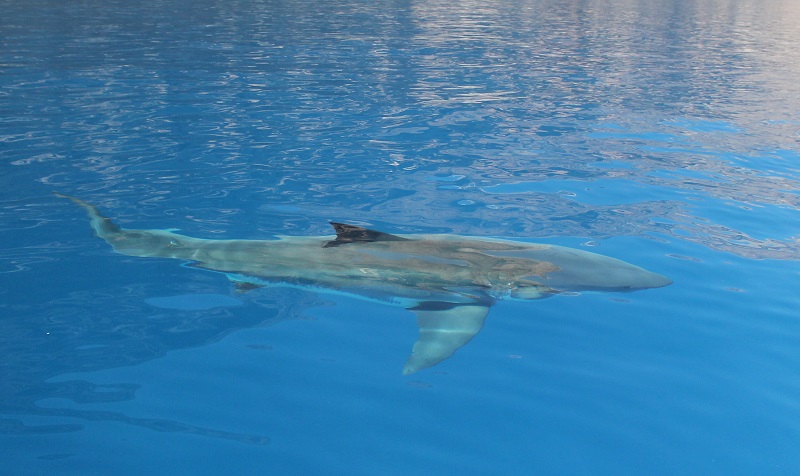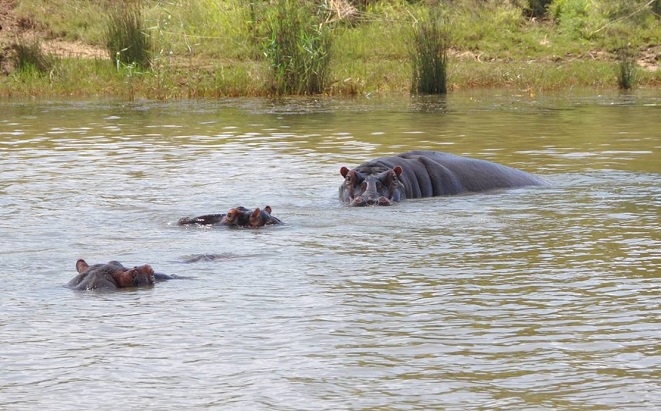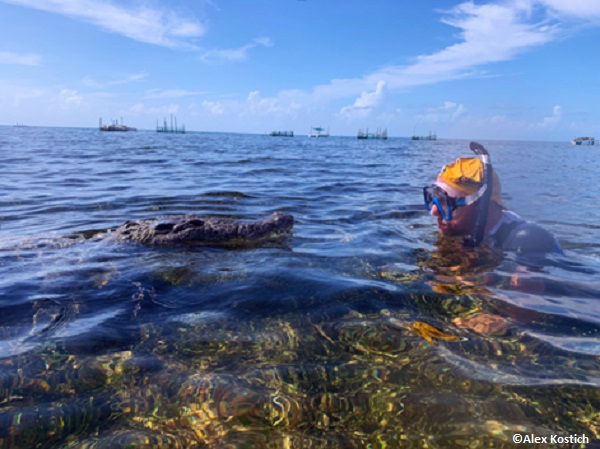In Part 1 of The Fear Beneath: Why are we afraid of sharks? we looked at why some humans may have developed a fear of sharks. In Part 2, we dive into some of the misconceptions and reality regarding shark attack.
Where are the hot spots for shark attacks?
In the U.S., Florida reigns and it wears a well-appointed crown. With 778 confirmed, unprovoked shark attacks from 1837-2016, Florida has no equal for the number of shark attacks, according to the International Shark Attack File (ISAF), a global database.
That’s more than the total number of attacks—556—in the other 19 coastal states combined during the same period.
Worldwide, it’s the USA all the way. The 1,352 U.S. shark attack cases logged by the ISAF for 1580-2016 were twice as many as the 607 attacks in second-place Australia. South Africa’s 250 unprovoked attacks, Brazil’s 103 attacks, and New Zealand’s 50 attacks round out the global Top 5 list.
Australians have a peculiar attitude toward sharks. It’s pathological, and it runs deep. Other cultures have their wolves and bears, their lions and tigers, their carnivorous demons lurking in the shadows. Here, there is no growling menace out there in the dark. Their demon is silent and it swims.
“Why did God make sharks?” Whenever my son asks me this, I am always tempted to answer, “To sell newspapers.” Because that’s how it feels sometimes. Flip through a Sunday paper this summer. Watch TV. When it comes to sharks, fear equals money. The more lurid the pics and headlines, the better.
Readers and viewers can’t help themselves. Advertisers love it almost as much as editors. A shark is a bona fide bad guy. I guess it’s what you’re left with when you’re no longer allowed to burn witches, because the shark is our secular substitute for the Devil.
The number of shark attacks has never been really high, but no statistic from this world can make an innate fear vanish or be forgotten. The fear of being eaten alive is the natural force of the attack that terrorizes our imagination, not the number of attacks.
Everything we do not know, cannot see or explain, be it the boogie man, aliens or vampires, give us shivers and goose bumps over the back. The sea is such a mystery for us. It is deep, dark and wild. When we swim in the ocean, we do not see what’s happening beneath us.

The waves roll over our heads, and even with a calm sea, a light swell will block the view into the distance. The sun’s rays reflected by the water make us blind to what might be right under the surface: Something evil from the shallows, a Leviathan that just waits for a swimmer or surfer to venture too far. The shark, the archetype of the ogre, a beast par excellence! It is simply a hydrodynamically perfectly adapted predator which we have highly stylized as a medieval demon—a monster!
While researching our origins and nature, the question of why we are fascinated by monsters is repeatedly discussed. This article is proof of this.
No one would read this, if it would be about cows or deer. Sharks, on the other hand, have our attention immediately. They strike deep in our subconscious mind because we simply expect them to eat humans. As long as monsters are carnivores, we are afraid of them. They radiate a dark fascination, because of their ability to intentionally kill us. What the demons of our imagination combine is their superhuman strength, malicious cunning and, above all, their insatiable, often revengeful appetite—upon us!
Spielberg’s “Jaws” is the best example. Therefore, the inexhaustible fascination we have with sharks is a need that goes far beyond morbid, sensational distress. Over time, sharks, or rather the dangers that emanate from them, have built a path into our consciousness and settled there permanently. In return, we show them extraordinary fidelity—to the point we are constantly recreating them in all media, in every age, and in every culture.
Many animals kill people.
Elephants trample dozens of people to death every year in Africa and Asia, but they do not eat their victims. Hippos and rhinos can be as deadly as driverless trucks, but they are not carnivores. Hyenas attack humans, but they hunt in the pack, not as lone hunters. Every year many people die from the bites of venomous snakes; scorpions and spiders also take their toll. In some respect, malaria mosquitos are the deadliest species of all because they have probably killed more people than the plague!
None of these deadly animals fall into the category of beasts that scare us, for they are not man-eaters. They are not apex predators. They are not monsters.

The thought of being dead at some time does not frighten us as a modern people. But the process of dying gives us shivers down our spine, and the idea of being eaten alive by a wild beast triggers panic in us. That is why we are so much more afraid of sharks than hippos, for example. Both animals kill humans, but hippos are generally passive animals. They only defend their territory. For them, we are invaders. Sharks, on the other hand, rarely actively hunt us, but for them we are prey!
Was that sea grass, which touched my foot? Is the dark shadow in the water beneath me just a rock? Has the shadow moved, or is it my imagination? Let’s get out of the water! Better safe than sorry! Our subconscious plays tricks on us. Sharks seem strange, even obscure. Somehow, we feel as if there is another, deeper level in the myth about sharks.
Every year, between 0-15 people are killed by sharks. In 2016, there were 81 unprovoked attacks, and only four people died. Measured by the millions of swimmers, surfers, divers, etc., that’s a very small number. Perhaps such statistics are also deceptive, and not reassuring for us.
A survey in Germany made it very clear: The fear of sharks is widespread because 82.4 percent of respondents answered the question “What do you think of a shark?” spontaneously with “Eats humans!” Our curiosity about sharks is dominated by fear. The helplessness with which we encounter a shark attack haunts us with horror. Inevitably, with every new attack, one thought comes: “That could happen to me!”
When we enter the shark’s realm, we do so at our own risk. You might wonder why anyone would put up with such conditions. Yet, if you select a more familiar example, we can put things into perspective. There are billions of people who are never more than a few minutes away from being run over by a car. It doesn’t take much effort to get yourself killed in settings that we normally consider to be safe; we live in a state of constant risk of death, yet unless it involves large, toothy sharks, we tend not to worry about it. The risk of city-living is generally low, but that’s because we take steps to keep it that way. Similarly, people living around sharks can do the same.
Culling, on the other hand, has proven to be ineffective with sharks. In fact, there’s reason to think it might increase the risk of attack by misleading people into a false sense of security over the results. People want to go swimming again, but culling will not achieve that outcome for them. As long as there are sharks out there, there will be a risk of attack. Therefore, safety and awareness campaigns must continue.
Sharks are silent. They, too, are social, but they need others to speak for them.
Sharks are now more vulnerable than dolphins. They may become more threatened than whales. Their survival is bound up with our own, for a world without sharks will eventually become a world without people. Let’s continue to expand our common knowledge and reform our attitude to these beautiful and misunderstood creatures while there’s still time.
Be sure to check out Scuba diving on Tiger Beach, Bahamas and How Cage Diving with Great White Sharks began.
Christian Kemper is a TV journalist from Germany. He has been diving with and studying sharks for more than 20 years. He has written two books about shark attacks and one book about crocodiles. He is a freelance writer for three of the largest diving magazines in Germany.

You can find his German language book Strange Pool Friends on Amazon and at https://tredition.de/.


